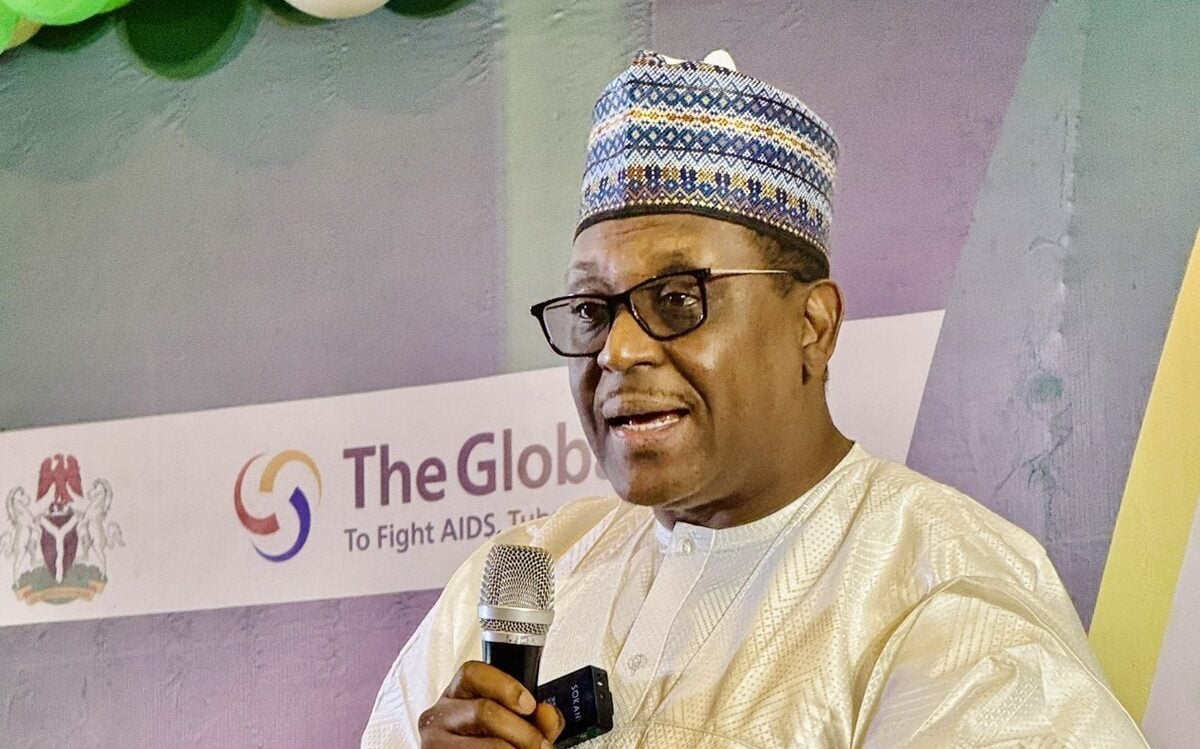By Kazeem Biriowo
The Coordinating Minister of Health and Social Welfare, Prof. Mohammed Ali Pate, has said the Federal Government’s tax reform will boost health funding as the recent tax bill signed by the president aims to increase government revenue, which will in turn finance basic services like healthcare and education.
Pate, while speaking at the end of the 11th Ministerial Oversight Committee meeting on Monday in Abuja, also disclosed that the federal government has allocated substantial resources to the health sector in the 2025 budget, including funds to provide essential drugs for those testing positive for various diseases.
ALSO READ: FG, UNODC partner to strengthen response to mineral terrorism
“The federal government has put resources in the 2025 budget, and the procurement is on the way to provide those drugs to meet up those additional needs arising from the higher testing.”
He noted the importance of a collaborative approach between the federal government, states, and local governments in rebuilding Nigeria’s health system.
“We see federal government, states, and local governments are very integral partners in this effort that we are making. No one level can do it alone.”
Pate also explained that the tax reform is crucial in reducing dependence on external financing. “When you create a simplified tax bill, you are increasing government revenue, and it is that government revenue that will finance issues like health, like education, and other things.”
“If we can collect more of the resources that are due, then governments at all levels will have the resources to be able to invest in health,” he said.
Speaking earlier, the Minister of State for Health, Dr. Iziaq Adekunle Salako, noted that progress is being made in Nigeria’s health sector reforms, particularly in the implementation of the Basic Healthcare Provision Fund (BHCPF).
According to Salako, the Ministerial Oversight Committee’s involvement in the reforms reflects the level of inclusiveness and transparency being employed by the Federal Ministry of Health and Social Welfare.
“The military oversight committee reflects the level of inclusiveness and transparency that the Federal Ministry of Health and Social Welfare is using in the implementation of the basic healthcare provision fund.
Salako also noted that this approach is driving more involvement at the sub-national level, civil society organizations, and synergy among government agencies.
“It’s driving more involvement of the civil society organisations and also it’s showing some level of synergy among the various agencies of government that are involved,” he said.
The minister maintained that the impact of the presidential directive on unlocking the healthcare value chain, saying it’s being felt and reported. “You can also see that from that meeting the impact of the presidential order around the unlocking the healthcare value chain is being felt, it’s being reported and it’s being felt,” he said.
Dr. Salako said the revitalization of primary healthcare is a key agenda of President Bola Tinubu’s administration, and results are being seen. “We also see the results and so these are key messages that is coming out from this embassy,” he said.
Meanwhile, the Ekiti State Commissioner for Health, Dr. Oyebanji Filani, who is also the Chairman of the Health Commissioners’ Forum, commended the efforts of the Federal Government and other stakeholders in improving the healthcare sector.
Filani said the recent meeting of health commissioners has yielded positive results, with a focus on ensuring that 8,000 facilities across the country provide quality services and commodities to the people.
“We’ve discussed over 6 months, and the goal is very simple, it’s to ensure that as many facilities… are able to provide access, ensure that people have access to quality services and provide the commodities that are necessary,” he said.
Filani noted that massive renovation work is ongoing across the country, with many primary healthcare centers being renovated. “If you move around Nigeria, we pretty much can see the primary healthcare centers in Nigeria are renovation sites, because a lot of resources are going to be renovated,” he said.
The commissioner also highlighted the importance of equipping healthcare facilities and training health workers to provide quality services.
“Beyond that is that we have equipment in these facilities and bring it into a level that ensures that we will provide the services. A lot of training has happened to upskill health workers and ensure that they are able to respond to needs as of today,” he said.
Dr. Filani stressed that the ultimate goal is to ensure that more people have access to good quality healthcare services, and become healthier, and more productive in the economy.
“So what that means in this sense is that more people have access to good quality services and in turn means that they can be more healthy and then obviously become productive in the economy,” he said.
